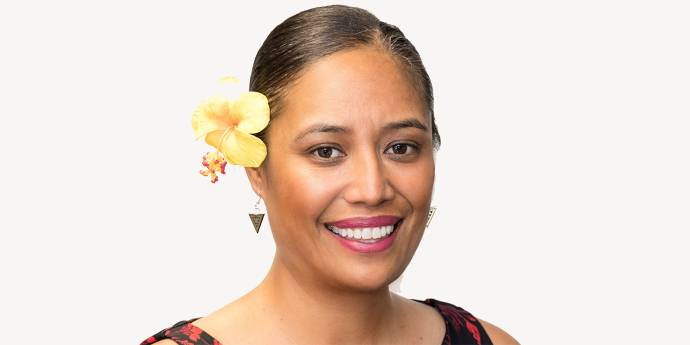Mike McRoberts: “Allow yourself to go there”
A pathway between Māori businesses and investors will help form authentic partnerships, according to Mike McRoberts. Find out more.
For Kirikaiahi Taiiti Mahutariki, being a director allows her to contribute her skills and make a real impact on things she is passionate about.

A lawyer by background, Kirikaiahi joined the Institute of Directors’ 2018 Future Directors programme and was selected to be part of the ServiceIQ (Service Skills Institute) board. We recently caught up with her and she shares with us her experience being part of the ServiceIQ board and some of the things she has learned.
I am from Maketu in the Bay of Plenty and am of Te Arawa and Mataatua descent. I am also of Cook Island (Tongareva) and Tahitian descent. I have over 19 years of commercial experience in the private sector. I am a lawyer by background with 17 years post qualification experience, and over that time I have worked at PwC in tax, Kahui Legal practising law and am now working in the banking and finance industry at ASB Bank in the Māori Financial Solutions team.
I am a founding member and alumna of the Advancement of Māori Opportunity (2003), a values-based leadership programme and have held roles with the Judiciary Committee for Wellington Rugby League, and the Charities Registration Board. I am an alumna of the 2015 Global Women BreakThrough Leaders Programme, and a board member on VSA (Volunteer Services Abroad), VSA Foundation (investment arm) and Ngā Wāhine Hākinakina o Aotearoa/Women in Sport Aotearoa. I was already serving on those boards before I was appointed as a Future Director to ServiceIQ in February 2018.
I have had a great experience as a Future Director with ServiceIQ. The board culture has been very open and welcoming which I noticed from the outset. Having one-on-one discussions with various directors at times has allowed me to learn from their wide skillset and experience, and I have been able to apply those learnings on my other boards. Being on the board of an organisation that is more commercial than my other boards has been invaluable. I can take these learnings with me in any future governance roles I take on.
I have learned a lot around effective governance, particularly regarding audit and risk, strategy, organisational culture, identifying and managing key risks, and managing stakeholder expectations. Specific things I learned include the importance of:
I have really enjoyed being able to watch and participate in governance at work and see the board take a very professional, measured and calculated approach to various matters. It’s been wonderful working with a great bunch of people who also happen to be great governors willing to pass on their knowledge and experience to me during my time with the board.
Initially because that’s what everyone seemed to be doing and it sounded like a good thing to try. My first exposure to governance made me realise governance wasn’t as sexy as I thought it was, but I thought I could contribute my skills to things I am passionate about and make a real impact.
Keeping up to date with current governance issues and broader issues that impact governance via IoD updates, publications and courses. I also catch up regularly with directors across a range of industries and sectors.
Meeting other IoD members and IoD staff, and access to relevant information and courses.
Risk Essentials as it helped me to identify good processes to follow from a risk perspective, and Rural Governance as it helped me to better understand the rural sector which is one sector I work within for ASB.
Spending time with my whānau and friends doing physical activity eg. training or ocean sports or travel. I love supporting my nieces and nephews in their various team sports or martial arts. I also enjoy sharing great food with whānau and friends.
From a governance perspective, I am inspired by experienced governors who contribute their valuable skills and time to not-for-profits, non-governmental organisations and charities. There’s often a perception that governance in that sector is not as valuable as governance in commercial organisations, and that it’s easy. Governors in that sector govern with a specific purpose in mind that is relevant to their particular organisation, and this sector is far from easy. There are often layers of complexity added to the role of governors because of the sectors within which they operate. So I take my hat off to those that choose to contribute their skills and time there.
I am also inspired by governors who share their knowledge and insights with the less experienced, with a view to helping the latter grow their own governance practice. To that end, I am very grateful for each of the directors on the ServiceIQ board and others over the years who have taken time to share their experience and learnings with me.
Ki a koutou kua toha mai ēnei mātauranga, ēnei tūranga hoki ki ahau, tēnei te pari mai o tai mihi e rere ana. [An acknowledgment of heartfelt thanks and gratitude to those who have shared their learnings and experience with me, and to those who have given me opportunities]. Kia orana, e kia manuia.
Learn more about the Future Directors programme